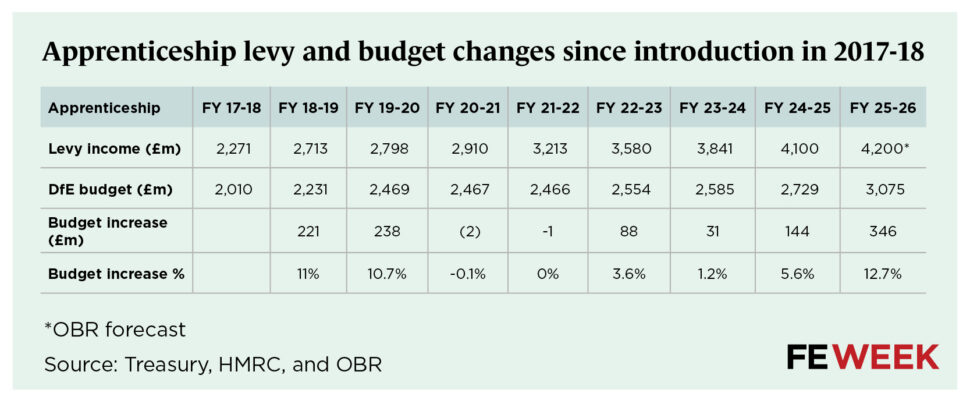It’s been on the cards for a while, but that won’t soften the blow.
From January 2026, those over the age of 21 will no longer qualify for funding for level 7 apprenticeships, considered the equivalent of a Masters’ degree.
The decision, confirmed by the Department for Education this morning after months of speculation, will have ramifications for many. For the thousands of young people – including those from disadvantaged backgrounds – who rely on this tried and tested route into a highly skilled professional career, it will come as a major blow.
Firms who hire apprentices at this level and who depend heavily on the supply of skilled workers will also suffer.
A recent ICAEW poll revealed that, for 46 per cent of our members surveyed, scrapping level 7 funding would impact their organisation. For SMEs, that impact would be particularly severe (48 per cent). Also, according to the members we asked, axing funding would not only lead to an immediate reduction in apprenticeship starts but result in lower tax revenues (37 per cent) and reduced business advice (47 per cent).
The government’s rationale behind the changes is interesting.
Heralding a record-breaking £3 billion apprenticeship budget and an additional 30,000 starts across this parliament in today’s announcement, they pointed to the ways that level 7 apprenticeships could be accessed by older or well-qualified people who were not intended to be the recipients of apprenticeship levy funding.
Consequently, the government has opted to refocus investment towards young people at the start of their working lives, rather than those already in work with high levels of prior learning and qualifications.
Call me an accountant, but this doesn’t quite add up.
Since the introduction of the apprenticeship levy, the number of school leavers entering our profession has doubled, while the average age of a level 7 ICAEW apprentice is 22. Therefore, stripping funding from this cohort could have unintended and profound consequences for firms, the talent pipeline, social mobility and the health of the wider economy.
While I support the idea of an age concession, the likely effect of a 16-21 exemption is a skew in recruitment towards school leavers, who typically follow a longer pathway to qualification as a chartered professional, either as an accountant or engineer or going into the legal profession.
Considering this, an age restriction of 18 to 25-year-olds would be a much more effective compromise.
In our view, the government must also prioritise investment in skills and abandon policies, such as this one, that could undermine economic growth.
These changes, coupled with uncertainty over the impact of the Employment Rights Bill, increasing costs to employers and future UK visa constraints, all paint a very worrying picture. Not only will they damage the attractiveness of recruitment into the professional services sector, but they run the risk of UK businesses choosing to offshore work – a concern shared by 41 per cent of our members polled.
Additionally, these changes fly in the face of the government’s commitment to its growth agenda, especially after it included professional and business services as a key growth-driving sector in the new industrial strategy.
The central question facing the country is: Where on earth are economic growth and rising living standards going to come from? The answer is very clear – indeed, the industrial strategy points the way to those sectors in which the majority of economic growth will derive. It is those sectors in which the UK is world-class – our great defence industry, advanced manufacturing, life sciences and professional services. Access to that talent pipeline is vital to the growth prospects of those sectors.
Skills are critical to the growth prospects of businesses and the economy, and apprenticeships help to close that skills gap – so they must be protected at all costs, or at least be consistent across all government policy.
At ICAEW, we’ll work closely with firms, apprentices and training providers to help them navigate this period of change, while remaining committed to an open dialogue with Skills England and employers to ensure access to talent is protected.
But it’s key that the government closely monitors these changes through the lens of economic growth so they can reconsider if they’ve been effective in a year’s time.
Level 7 apprenticeships are exactly the kind of qualifications that businesses need, and on which the UK’s foreign direct investment depends. In solving one problem, the government is in danger of undermining its wider objective for growth, as well as hitting the jobs and aspirations of ambitious young people.

















